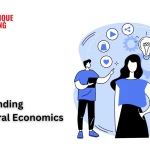This advanced training course explores how principles of behavioral economics shape consumer and organisational decisions in the insurance sector. While traditional economics assumes rational decision-making, behavioral economics reveals the impact of biases, heuristics, and emotional drivers on insurance choices such as policy selection, risk perception, and claims behavior.
Participants will gain insights into how psychological factors influence both insurers and policyholders, and how this knowledge can be applied to improve product design, pricing strategies, risk communication, and customer engagement. The course also highlights regulatory and ethical considerations in applying behavioral economics to insurance practices.
By the end of this course, participants will be able to:
- Understand the fundamentals of behavioral economics and its relevance to insurance.
- Analyse common decision-making biases affecting insurance customers.
- Apply behavioral insights to product design, pricing, and marketing.
- Evaluate the role of behavioral nudges in risk prevention and claims management.
- Assess the ethical implications of behavioral strategies in insurance.
- Develop strategies to align behavioral economics with long-term trust and customer satisfaction.
This course is ideal for:
- Insurance professionals in product development, marketing, and customer relations.
- Behavioral economists and data analysts in financial services.
- Risk managers and actuaries.
- Regulators and policymakers in insurance markets.
- Academics and consultants specialising in behavioral finance and insurance.
The course combines expert-led sessions, case studies, and interactive discussions. Participants will analyse customer behavior scenarios, evaluate decision-making patterns, and design interventions to enhance insurance decision outcomes.
Day 5 of each course is reserved for a Q&A session, which may occur off-site. For 10-day courses, this also applies to day 10
Section 1: Introduction to Behavioral Economics in Insurance
- Key concepts: bounded rationality, heuristics, and biases.
- Differences between traditional and behavioral economics.
- Why behavioral economics matters for the insurance industry.
Section 2: Decision-Making Biases in Insurance
- Loss aversion and its impact on policy selection.
- Overconfidence and underestimation of risks.
- Availability and anchoring biases in claims and coverage choices.
- Real-world examples of bias-driven insurance behavior.
Section 3: Applying Behavioral Insights to Insurance Products
- Behavioral pricing strategies and framing effects.
- Designing policies that encourage uptake and retention.
- Nudging preventive behaviors to reduce risk exposure.
- Case studies of behavioral economics in life, health, and property insurance.
Section 4: Behavioral Economics in Risk and Claims Management
- Influencing customer decisions in claims reporting.
- Communication strategies to improve compliance and trust.
- Behavioral interventions for fraud reduction and transparency.
- The role of digital platforms and AI in shaping insurance decisions.
Section 5: Ethical and Strategic Considerations
- Balancing customer welfare with insurer profitability.
- Ethical implications of nudging and influencing behavior.
- Behavioral economics in insurance regulation and consumer protection.
- Future trends: personalisation, big data, and behavioral analytics.
Upon successful completion of this training course, delegates will be awarded a Holistique Training Certificate of Completion. For those who attend and complete the online training course, a Holistique Training e-Certificate will be provided.
Holistique Training Certificates are accredited by the British Accreditation Council (BAC) and The CPD Certification Service (CPD), and are certified under ISO 9001, ISO 21001, and ISO 29993 standards.
CPD credits for this course are granted by our Certificates and will be reflected on the Holistique Training Certificate of Completion. In accordance with the standards of The CPD Certification Service, one CPD credit is awarded per hour of course attendance. A maximum of 50 CPD credits can be claimed for any single course we currently offer.
- Course Code PO5-133
- Course Format Classroom, Online,
- Duration 5 days













